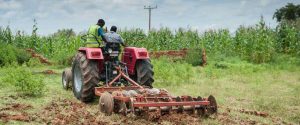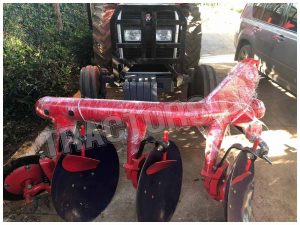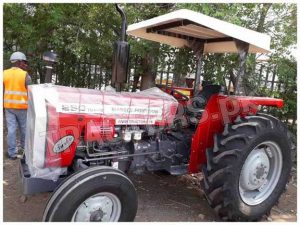How did the tractor improve agriculture?

Tractors are agricultural farming machines that have simply revolutionized the way of farming by making it more efficient and convenient. Today, there is much more ease for farmers than decades back when the traditional oxen cart method was used where there was two bullocks (oxen) were tied by a 4-wheeled wooden cart and forcefully used to drag it forward for the core purpose of plowing on fields. Modern tractor farming has brought a radical change in field farming by transforming the old conventional method of manual oxen farming into mechanization. It has reduced human effort to a maximum level and brought ease of comfort with more productivity in less time. Nowadays, tractors offer multiple uses and implementations for farmers to perform their task much effectively. There are plenty of benefits of increasing agriculture farming with the help of mechanized tractors:
Increased Crop Production
Maximizing Crop Production is the first and foremost benefit of agricultural mechanization as it greatly helps farmers to yield an increased amount of crops with less cost of labor. The cutting cost has provided a true advantage of quick task execution by saving a lot of money on extra manpower.
Better Productivity
Productivity is the essential element in agriculture farming where performance is increased by double with a rate of better efficiency of task execution and maximum crop production. Now, a farmer can easily cover a wide area of land for plowing, tilling, cultivating, planting, fertilizing, and seeding tasks.
Durability and Versatility
Durability and Versatility are two integral factors that cause more amount of work with longer hours of tractor working capability and performing a variety of tasks on a single machine. Implements attachment helps create a versatile mechanized task performance in less time for farmers.
Time-Saving
Time-Saving is a key reason for using tractor farming as it helps saves a lot of time and performs tasks in a few minutes which were used to be done in hours. It has simplified complex tasks with ease of efficiency for farmers. It has maximized results with the finest quality plowing, reaping, and crop cultivation.
Low Cost of Production
Tractor Farming has helped decreased the cost of work with less manpower labor and more efficient task output performance. It has rapidly increased the income of farmers by making them more prosperous than ever before. Tractors provide a lot of help in increasing farming productivity by doing complex tedious tasks in an easy and effective manner. It is built with a robust compact design with the dynamic powered engine to forcefully pull heavy loads with hydrostatic and power shift transmission for a smooth plough on the agricultural land field.


